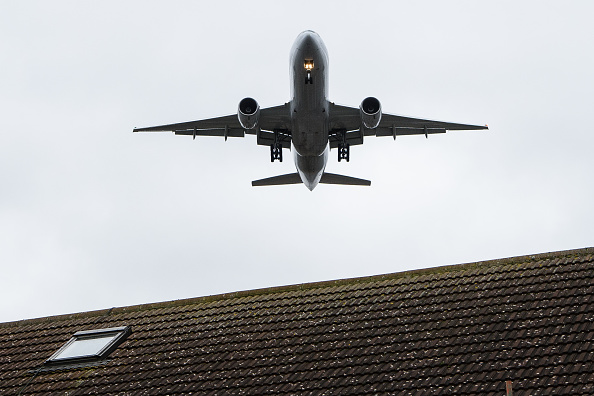We’ve been warned that Brexit could spell the end of cheap travel. But is it really true that Britain voting out of Europe would hit holidaymakers in the pocket?
Easyjet’s boss Dame Carolyn McCall said before that Brexit ‘wouldn’t be good for Britain’. And in a company prospectus, the airline warned this year that if Britain votes out in the EU referendum in June, then it could have a ‘material adverse effect’ on the budget airline. But does this hold up to scrutiny?
Easyjet says that:
‘The outcome of this decision (in the referendum) could have a material adverse effect on easyJet’s financial condition and results of operations.’
Obviously for passengers, bad financial conditions for a company mean rising ticket prices. But although the suggestion is that Brexit would lead to this ‘adverse effect’, the airline actually refers to political uncertainty being the cause, whatever the outcome of the referendum. Easyjet goes on to say:
‘The outcome of such a referendum is not known and there is uncertainty as to the impact of either a ‘Remain’ or ‘Leave’ vote on general economic conditions in the UK and the UK’s future relationship with the EU.’
Although Brexit could, possibly, lead to higher air fares in the event of years of uncertainty over Britain’s relationship to Europe – a potentially problematic scenario for an airline – there is also a flip side: that the EU could be driving up costs for passengers in the meantime. Ironically, this could be a consequence of one of those rarely-lauded bits of EU legislation: the boringly-named EC Regulation 261/ 2004. This vital weapon for airline passengers in getting money back when they don’t travel on time is an EU regulation and does not form part of UK law directly.
Easyjet says in its own prospectus that:
‘Under European legislation, airlines including easyJet are required to compensate passengers for certain delays and cancellations.’
Although Brits are well protected at the moment by this – and do benefit in the form of compensation when they don’t travel on time – it’s possible to argue that European legislation could also be responsible for higher air fares because of this strict regulation. To put it bluntly: better compensation for delayed passengers means higher ticket costs. But if Britain were to leave the EU, this protection for them to demand their money back could disappear with it. As Stephen D’Alfonso, from the Association of British Travel Agents says:
‘The rules that govern compensation in the case of flight delays and cancellation are part of an EU regulation. Therefore, it follows that UK passengers could no longer be covered by these compensation guidelines.’
Evidently, the British Government could introduce their own protection for consumers if Britain does leave the EU. But, in the meantime, less compensation payouts could actually reduce air fares, even if it did make it trickier for disgruntled passengers to get money back.
EasyJet also mentions in its prospectus that Brexit would have an unknown impact on Britain’s inclusion in the Single European Sky initiative. This basically breaks down the 67 airspace blocks, which were based on national boundaries, into just nine – making it easier for air traffic controllers to guide aircraft.
It seems unlikely, though, that Brexit would have much effect on this close union in the skies above Europe. For one, countries such as Norway and Switzerland – both outside the EU – are included in this initiative. Furthermore, other nations outside of Europe – such as Egypt, Tunisia and Albania, also observe the scheme – giving little credence to the view that membership of the EU is a prerequisite to being in the Single European Sky initiative.
It’s also worth considering other airlines based outside the EU to form a comparison to what the future could look like for easyJet in the event of Brexit. And the Norwegian model could prove a useful boon to Brexit campaigners urging businesses not to worry about life outside of Europe. Norway’s main budget airline, Norwegian airlines, is thriving: it’s the third biggest budget airline in Europe and has grown in size – both in terms of the number of planes it has as well as passenger numbers – for each of the last 11 years. Although it might be smaller than easyJet, it seems difficult to ignore Norwegian as an example of an airline doing well outside of the EU.
Leaving aside the EU, it’s also worth remembering that there are other factors which are likely to prove much more significant in relation to rising air fares: the cost of fuel is probably the most obvious example, and there’s little the EU can do about that. In easyJet’s prospectus, in which it warned about different scenarios which could affect the company, there were 34 things listed: the prospect of Brexit was bottom of the list. But other factors, such as the possibility of strike action, cyber security breaches and increases in fuel costs, were all placed higher up. And for a company which spends a third of its total operating cost on fuel, the cost of this is always going to trump whether Britain is in or out of the EU in terms of importance.
But perhaps the most telling sign that Brexit probably won’t have an impact on air fares, at least in the short term, is on easyJet’s own website. Looking to book a trip to Barcelona in the summer? It’ll cost you £50 less a week before the referendum than a trip a month after it.







Comments